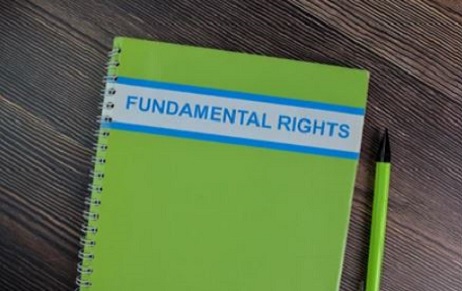Franklin D. Roosevelt (FRD) on different platforms, supported the Indian Freedom Struggle making the abovementioned…
The Development Of Human Rights Issues (Access To Medicines) In The Light Of Intellectual Property Rights
There is a constant conundrum between Intellectual Property and Human Rights in today’s day and age. There has been an emergence of International Human Rights obligations post World War II. A plethora of International Organizations like the WHO (public health), Universal Declaration of Human Rights 1948 (UDHR), International Covenant on Civil and Political Rights 1966 (ICCPR), International Covenant on economic, Social and Cultural rights 1966 (ICESCR) have a direct impact on IP obligations. There is difference between the kind of protection afforded to IP holders in countries at different stages of development and there has been extensive lobbying by the developed nations like EU and US in increasing the protection of IP Rights in the International domain via multilateral treaties of which TRIPS is an excellent example (India joined the TRIPS on January 1,1995). The most salient feature has been the issue of compulsory licenses for patents especially in relation to pharmaceutical products where there are diverging views between the developed and developing nations, which is also one of the main reasons why the Paris Convention revision in the early 1980s did not see the light of the day.
Art 3, 15 of the ICESCR, 1976 specifically states that the public has the right to “benefit from the protection of the moral and material interests resulting from any scientific, literary or artistic production of which he is the author”. This also includes patents for pharmaceutical products and treatments. Further Art 12 states that “The States Parties to the present Covenant recognize the right of everyone to the enjoyment of the highest attainable standard of physical and mental health”.
Art 31 of the TRIPS provides for conditions of compulsory licensing and Art 31bis which was included post the amendment of 2003 provides for conditions wherein “eligible importing countries”, mostly LDC’s can import medicines from “eligible exporting countries” pursuant to satisfaction of certain conditions. Art 5(A) of the Paris Convention also provides for the scope and conditions on the basis of which compulsory licenses can be granted. During the 1990s, in the case of the anti-retroviral therapies for AIDS, the US priced such drugs at extremely high prices and South Africa was one of the worst hit countries. In 1997, the South African government introduced a bill which established conditions to ensure supply of affordable medicines which led to immense pressure from the US that South Africa was in contravention of the TRIPS as it specifically allowed the importation of patented medicines into South Africa [1], that with the consent of the patent holder was put onto another market. The whole idea was to facilitate and encourage the importation of such unaffordable patented medicines from the cheapest market, also known as parallel importation, a form of trade that is largely allowed in the EU and Singapore.[2] One of the major arguments proposed with respect to TRIPS revolved around the TRIPS obligation that patents be “enjoyable without any discrimination” as to the field of technology and the South African Bill was seen to be discriminatory against pharmaceutical patents.[3] Ultimately, the pharmaceutical companies in 2001 withdrew from the litigation and settled.[4]
Post this, the access to medicines campaign had triggered a much broader and bigger discussion pertaining to the price of such drugs and their availability in developing and least developing countries.
At a special meeting of the TRIPS council in June 2001, developing nations pushed for an interpretation of TRIPS which inculcated dealing with a health crisis which led to the Doha Ministerial Declaration on the TRIPS Agreement and Public Health, November 2001[5], the declaration which asserts the right of developing countries to protect the health of their population.[6]The WTO General Council on 30 August 2003 facilitated Implementation of Paragraph 6 of the Doha Declaration on the TRIPS Agreement and Public Health and there were detailed text setting out rules for “eligible importing members” to secure access to pharmaceutical manufacturing capacity from “eligible exporting members” which affected Art 31(f) of TRIPS and laid out conditions for Art 31bis and the Annex inserted after art 73, TRIPS. The World Health Organisation IP agenda concerns with such issues and goes beyond patents and costs of medicines to include role of health systems and innovation in the healthcare sector. Economic globalization and increasing privatization and commercialization of science has made it even more difficult to achieve the various balances envisioned in Article 15 of ICESCR.[7]
These changes further facilitated the reduction in the prices of anti-retroviral treatments and specifically provided support to generic manufacturers in India and Brazil.[8] These drugs, mostly were not protected under the patent law in both these countries because prior to TRIPS, these countries did not recognize pharmaceutical product patents.[9] Post TRIPSs, a couple of developing countries[10] including India which had generic manufacturing capabilities were obliged to comply with the obligations under TRIPS pertaining to patents on pharmaceutical products.[11]
Another example of how Australia proposed to strike a balance between public health concerns and IP conventions is the plain packaging legislation for tobacco products and the dispute which arose out of a bilateral treaty between Honk Kong(Philip Morris Asia) and Australia. The dispute was dismissed on jurisdictional issues. The legislation pertains to optimal combination of plain packaging design elements i.e. colours, font size, graphic health warnings (size and layout). Australia has enacted the legislation so as to make use of the flexibilities in the TRIPS Agreement e.g. it did not stop all uses of the mark and stated that the mark will not be removed from the register for non-use thus, escaping liability under Art 5 C and corresponding Art 19 of TRIPS.
Even
though multilateral treaties like TRIPS and Berne Convention strengthen the
rights of the IP holders in relation to specifically patents and copyrights,
there are flexibilities which have been included in order to pave way for
access to medicines under compulsory licenses. In the recently declared “pandemic”
of COVID-19, where the US is said to be charging high prices for undertaking
detection tests, the Singapore government has devised test kits for the virus,
and medical professionals from all over the world are trying to come up with a
vaccine for the disease. It will be a point of concern to note how the above-mentioned
provisions come into play. Once the vaccine is developed, the multilateral
treaties and bilateral treaties will come into play and take effect to ensure
access to such pharmaceutical products in the developing countries and LDCs.
Author: Harleen Sethi, LLM (Intellectual Property and Technology Laws) Student at National University of Singapore, in case of any queries please contact/write back to us at aishani@khuranaandkhurana.com.
References:
[1]Peter Drahos and John Braithwaite, Information Feudalism: Who Owns the Knowledge Economy (2002, 10.1057/9780230522923) 4 (“Drahos”)
[2]Ibid
[3]Ibid
[4]Ibid
[5]“We agree that the TRIPS Agreement does not and should not prevent Members from taking measures to protect public health. Accordingly, while reiterating our commitment to the TRIPS Agreement, we affirm that the Agreement can and should be interpreted and implemented in a manner supportive of WTO Members’ right to protect public health and, in particular, to promote access to medicines for all.”
Par 6 of declaration: “We recognize that WTO Members with insufficient or no manufacturing capacities in the pharmaceutical sector could face difficulties in making effective use of compulsory licensing under the TRIPS Agreement. We instruct the Council for TRIPS to find an expeditious solution to this problem and to report to the General Council before the end of 2002.”
[6] Drahos (n 5) 5
[7]Audrey Chapman, ’A Human Rights Perspective on Intellectual Property, Scientific Progress, and Access to the Benefits of Science’ (1999)
[8]Drahos (n 5) 5
[9]Ibid
[10]Six developing countries, namely Brazil, Argentina, China, India, Mexico and Korea.
[11]Ibid



